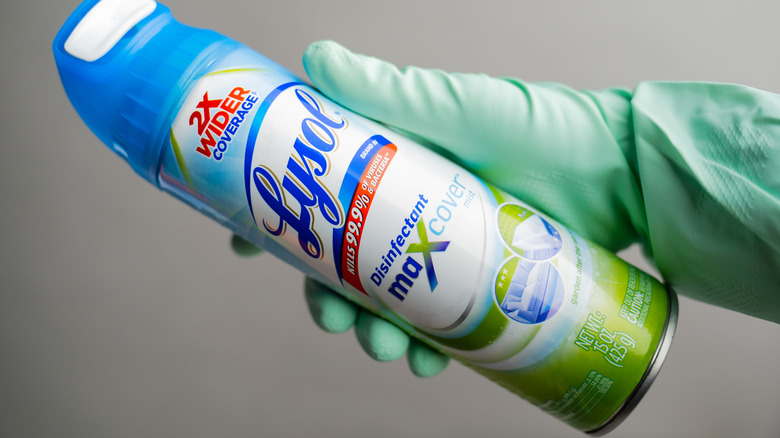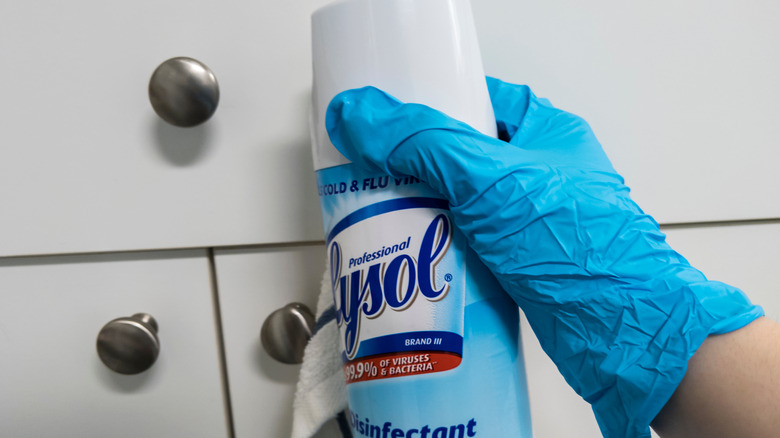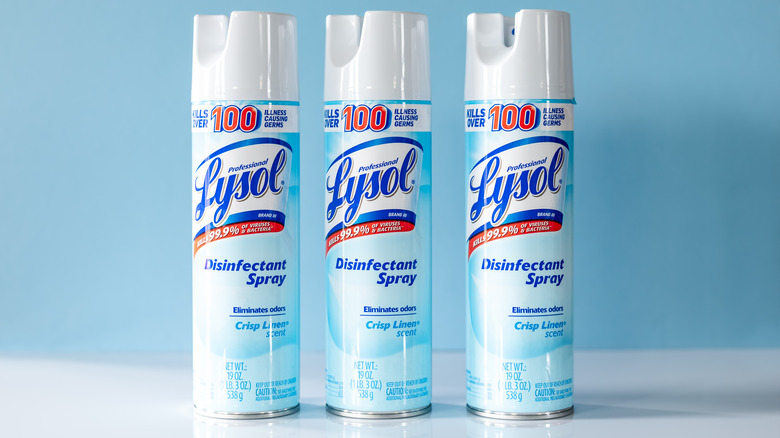Does Lysol Ever Expire?
Having disinfecting products on hand in case someone in your family gets sick is a good idea. Stocking up on products you regularly use is also a great way to hedge against rising prices. It might even make sense to buy in bulk at your favorite warehouse store. If you're going to have to toss expired products like Lysol before you finish using them up, however, that's no bargain. This brings up a good question. Do disinfectants expire and, if so, how much time has to pass before it happens?
In a nutshell, Lysol is effective as a surface disinfectant for two years. If you've had a can of Lysol spray hiding in your linen closet or under the kitchen sink for longer than that, you're not the only one. Many people buy disinfecting sprays, use them occasionally, and never give a second thought to how long they remain potent. But if you're expecting the products you bought several years ago to do the job as powerful disinfectants, you could end up being disappointed in the result.
The shelf life of Lysol
Thinking two years doesn't sound like a long time? In actuality, Lysol has a longer shelf life than some other disinfecting products. Bleach, for instance, has a one-year shelf life when stored correctly (via Clorox). So, if you want a longer-lasting surface disinfectant, Lysol may be a better choice for your household provided you use these types of products.
The expiration is not the most important date to look for on a Lysol can, though. In fact, an expiration date may not even be printed on the packaging. Instead, look at the manufacture date. Once you get beyond two years from the date the product was manufactured, that's when the active ingredients in Lysol start to degrade. This means it begins to lose its effectiveness as a disinfectant, which by definition means it no longer eliminates both bacteria and viruses. Because consumers have no way of knowing how much the active chemicals have diminished in efficacy after that time, it's best not to continue using them for disinfecting, as noted by the Center for Research on Ingredient Safety at Michigan State University.
Using Lysol properly
If you've noticed the mention of Lysol being used as a surface disinfectant several times here, there's a good reason for that. The product was designed for that purpose. It's not safe for use on skin, in food, or for any other reason other than disinfecting surfaces, as noted in a New York Times interview with Joe Rubino, director of research and development for microbiology with Lysol's parent company.
According to the company website, Lysol spray kills 99.9% of viruses and bacteria that can lurk on things like countertops, appliance and door handles, and other household surfaces. The brand recommends wetting the area with cleaner for three to four seconds and then allowing it to sit for three minutes to disinfect hard surfaces. Soft surfaces like pillows and upholstered furniture need to remain moist for 10 minutes and then allowed to air dry naturally. Try the spray in an inconspicuous area before using it on fabrics to make sure they won't sustain damage. And be sure you keep an eye on that manufacturing date as you're using up your spray for maximum effectiveness.


